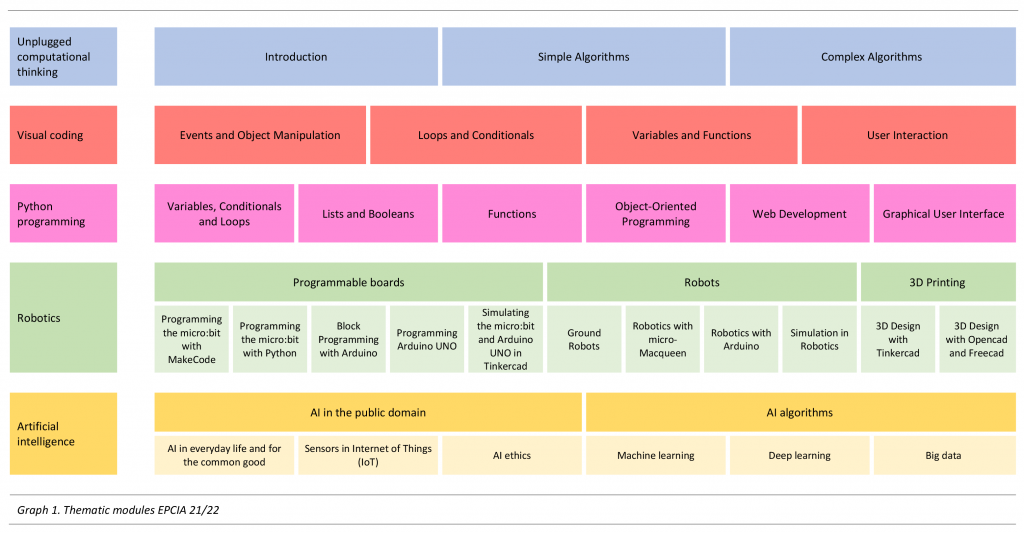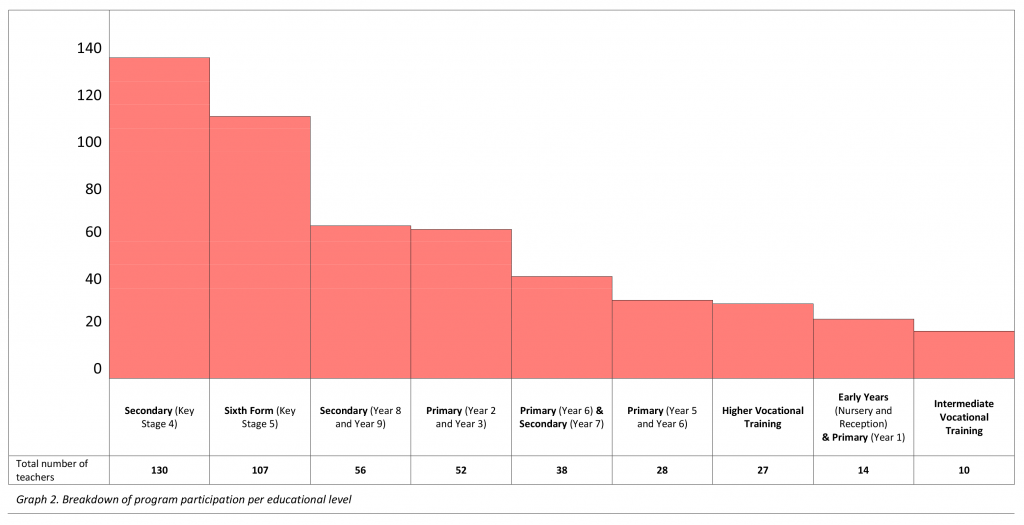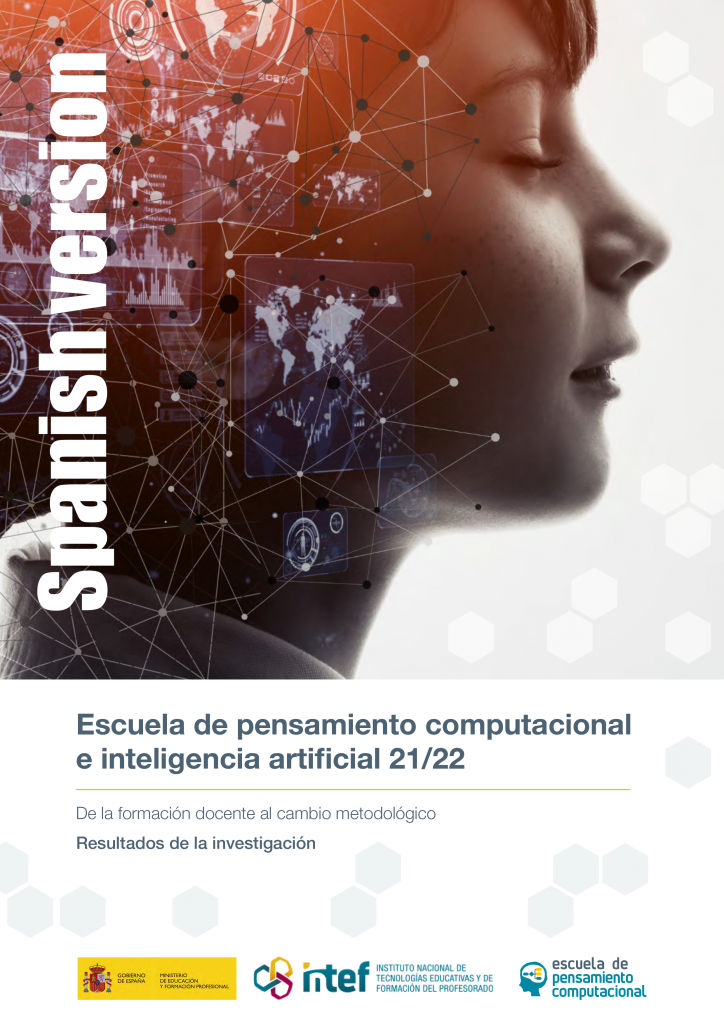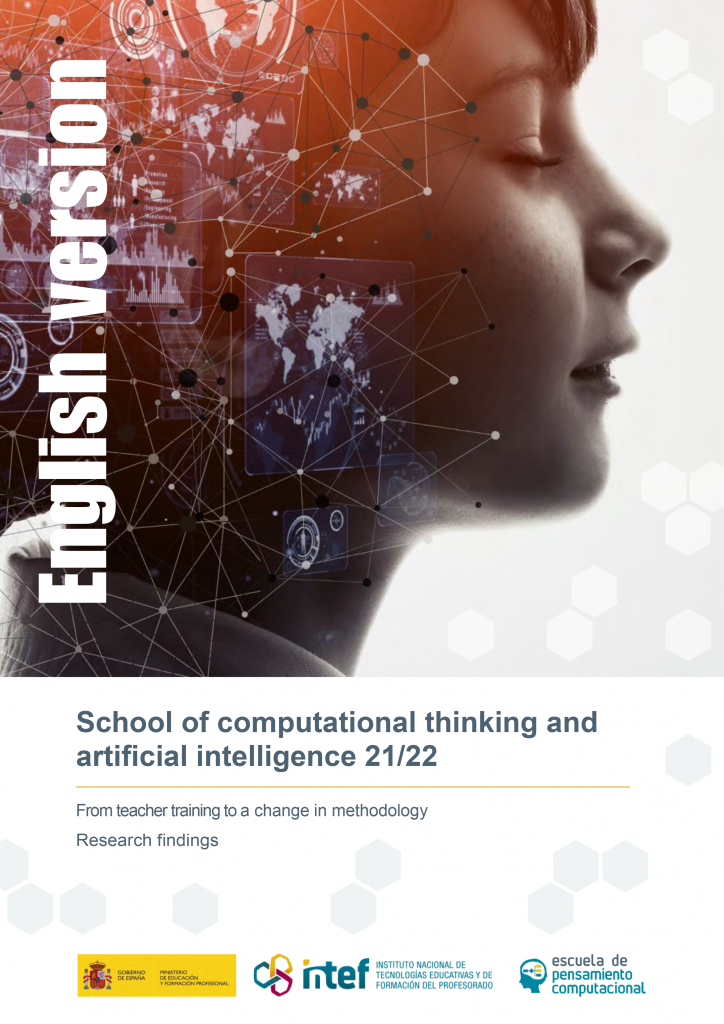The School of Computational Thinking and Artificial Intelligence (EPCIA), coordinated by the Ministry of Education and Vocational Training in collaboration with the autonomous communities, cities and Educational Action Abroad, has carried out its fourth edition during the 21/22 school year.
A total of 682 teachers participated in the program, presenting 426 didactic proposals that were later implemented in the classroom around the 5 areas that structured the EPCIA project this year:
- Unplugged computational thinking
- Visual coding
- Python programming
- Robotics
- Artificial intelligence
Participants were able to create their own itinerary by choosing 3 of the 30 training modules offered (see Graph 1) and 2 didactic modules: one for analysis and didactic proposal and another for creation and implementation in the classroom.

The variety of modules and the open structure have allowed teachers from all educational stages (see Graph 2) to join the EPCIA 21/22 project and later apply the training received in the classroom.

With the aim of measuring the impact of the EPCIA project on teacher training and practice, a research collaboration has been carried out with the Rovira i Virgili University in Tarragona. This research, developed in parallel with personalized training and practical implementation, has been essential to produce a results report that, obtained through qualitative and quantitative methods, has once again demonstrated the importance of computational thinking and artificial intelligence in our classrooms.
The conclusions, which can be expanded upon in the report, have been clarifying regarding the importance and necessity of this training and the impact it has had on our students’ curriculum and digital competence, teaching practice and the educational community in general. Among them, we can highlight:
- Methodological change, through the gradual introduction of activities related to CT and AI in teaching practice.
- Impact on students, regarding academic performance, attitude, participation and motivation.
- Improvement of students’ competencies, regarding their way of learning and reorganization of educational processes.
- Increased interest of female students in the proposed activities.
- Improvement in the motivation and autonomy of students with special educational needs.
- Positive impact of the training received on teaching staff and management teams, fostering interest among colleagues to collaborate and carry out projects together, mixing educational levels, groupings and areas of knowledge.
- The patent transversality of computational thinking and the need to incorporate it in all areas and educational stages.
- The connection and numerous applications that computational thinking and artificial intelligence have in our daily lives.
In summary, as the researchers themselves point out, spaces that discuss the role of data, computational thinking and artificial intelligence in education will increasingly be necessary. We hope that the evidence provided by this research can contribute to enriching the debate.
We invite you to consult the full report to see in more detail how the initiative, research and evidence has been developed.





